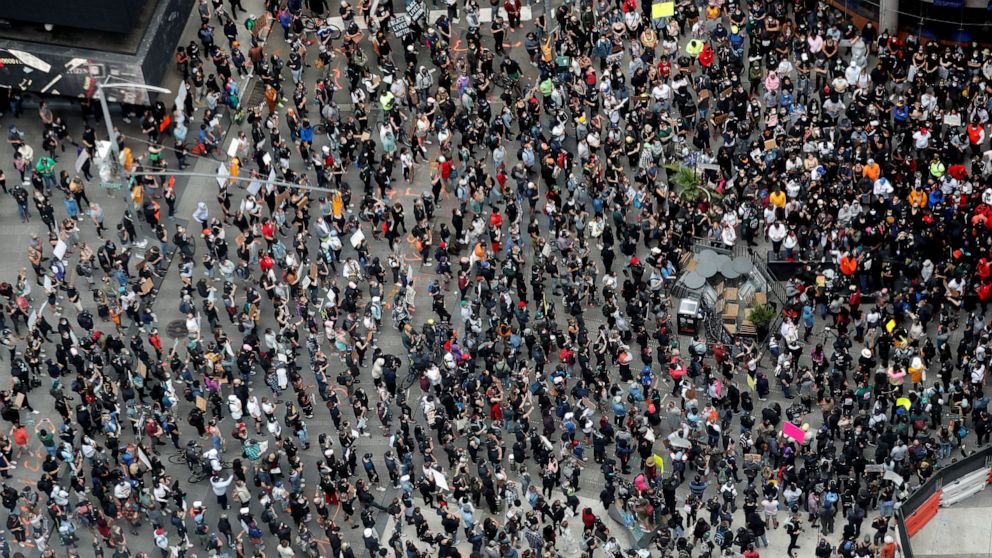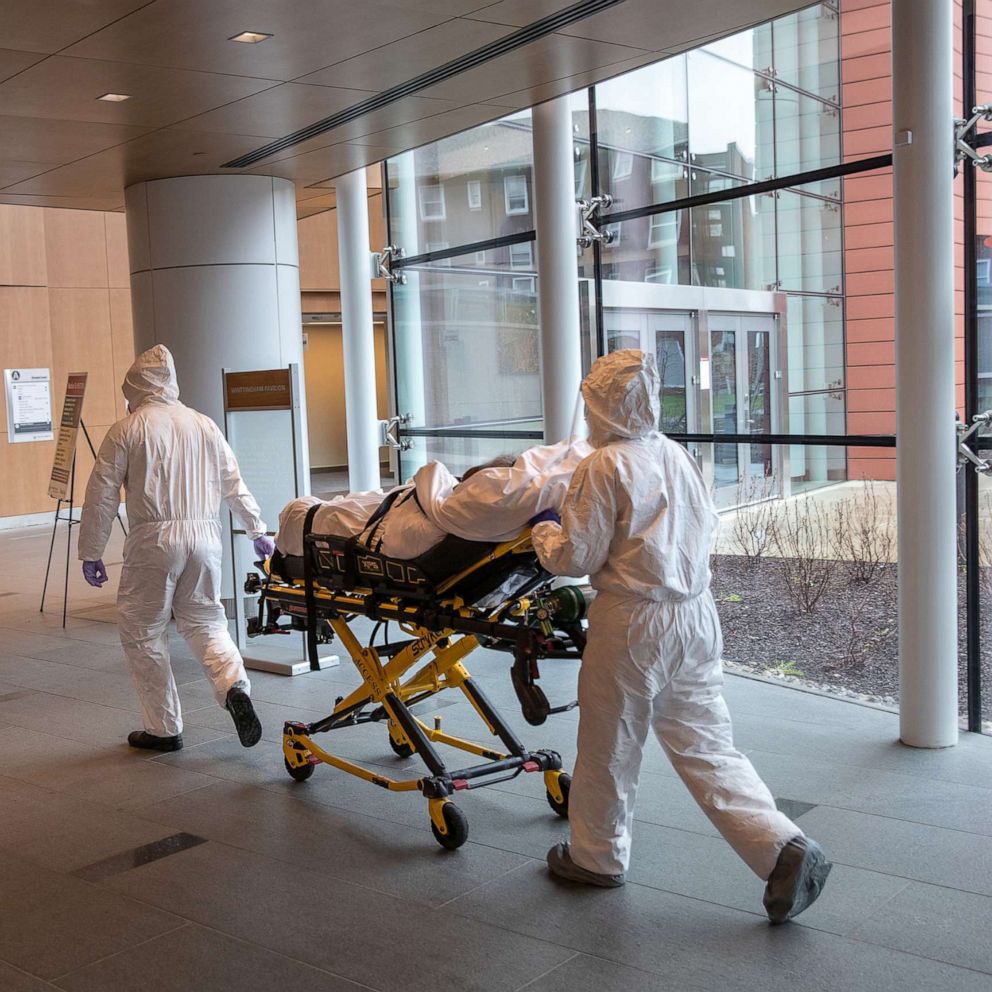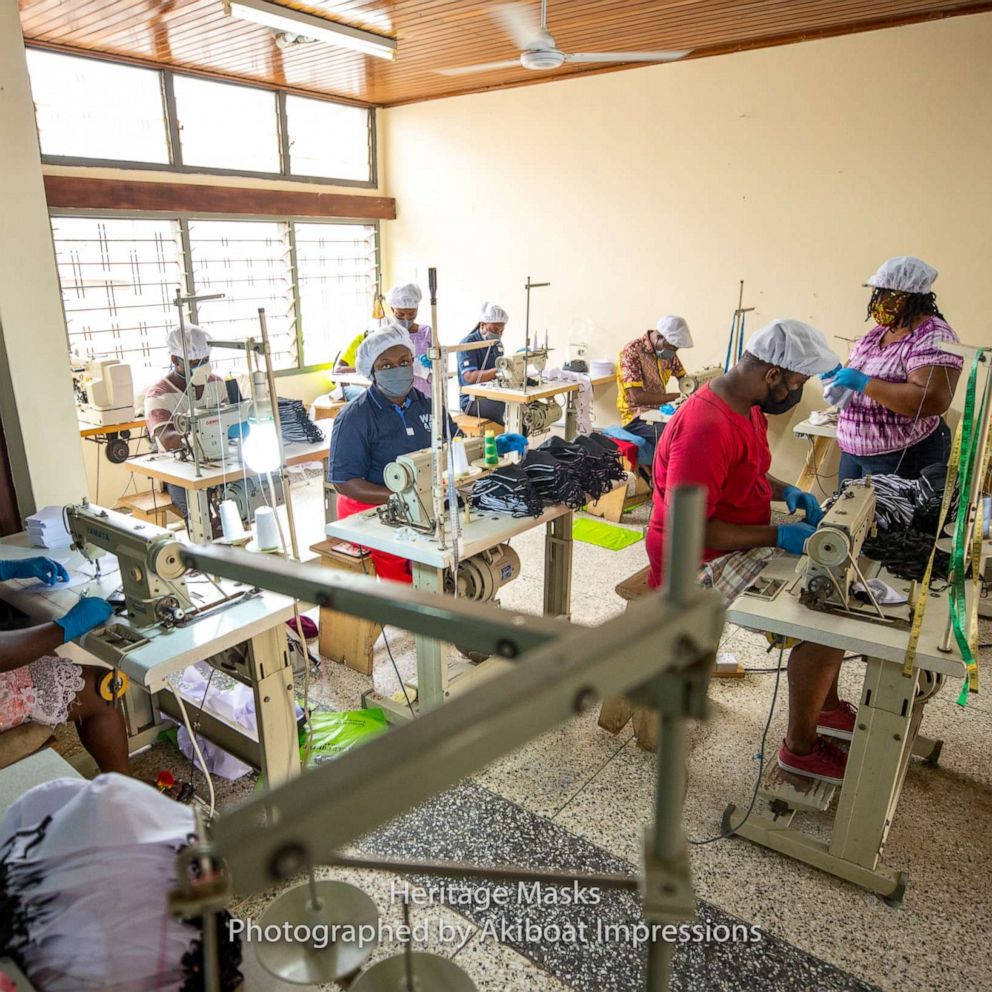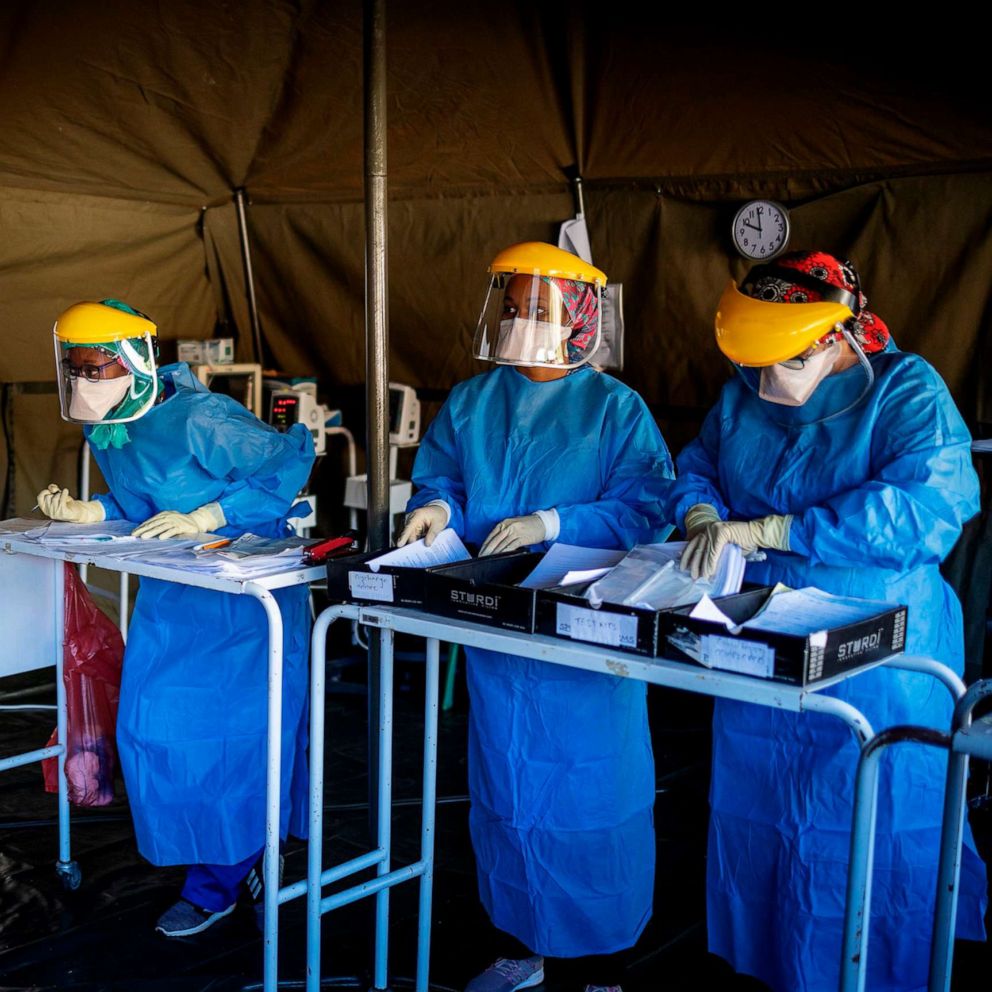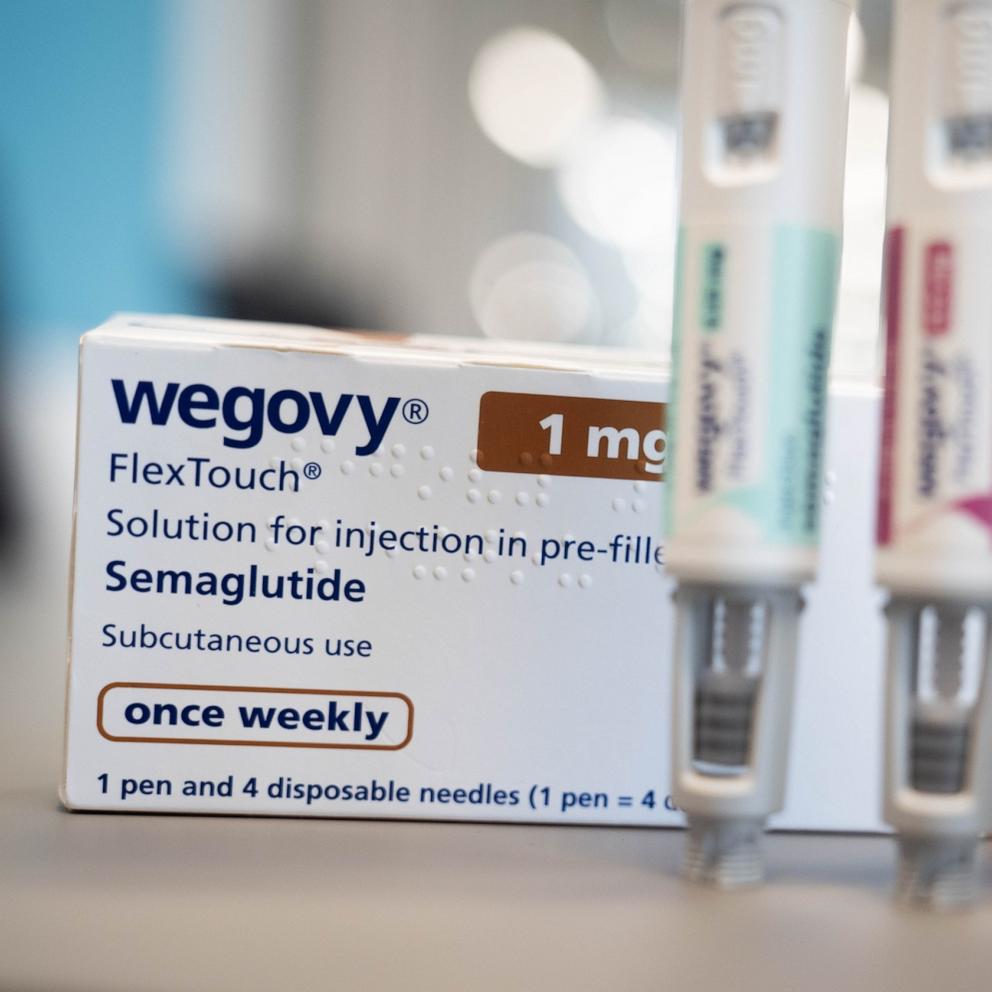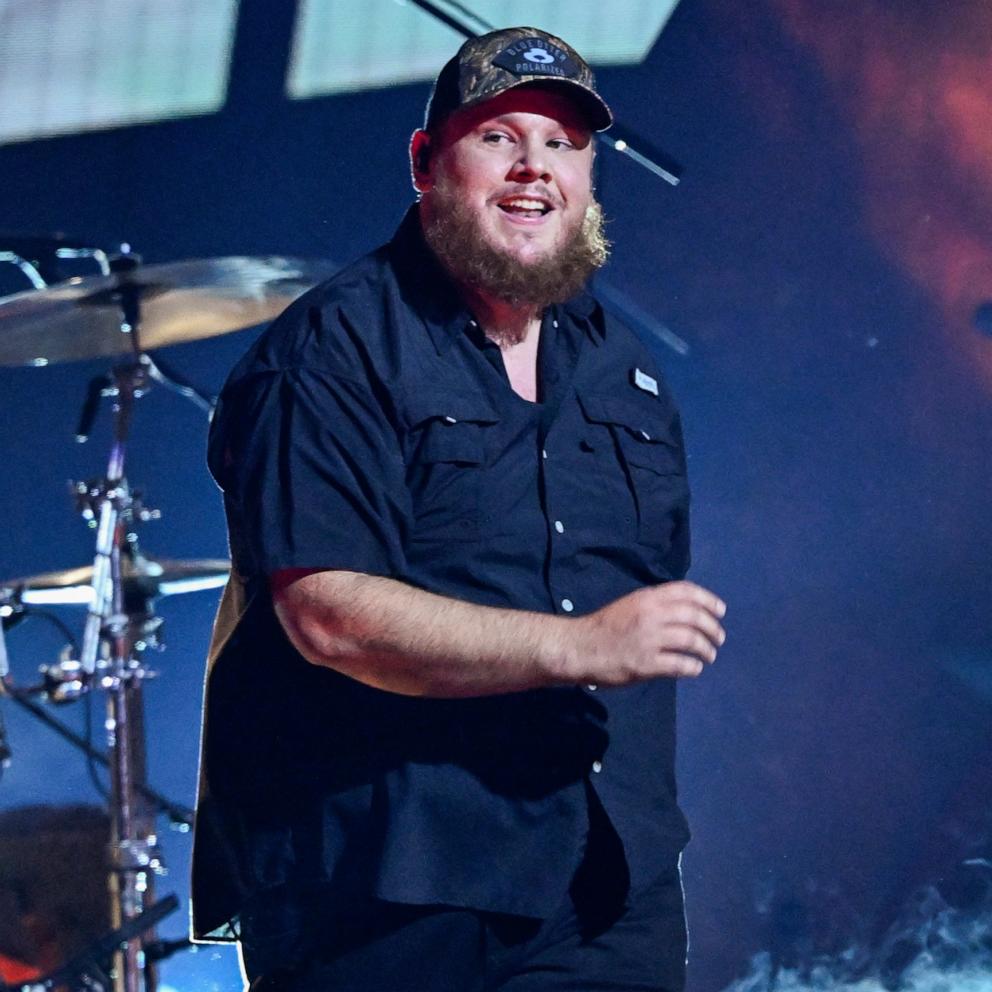Trump promises to move Republican National Convention over coronavirus restrictions
A pandemic of the novel coronavirus has now killed more than 380,000 people worldwide.
Over 6.3 million people across the globe have been diagnosed with COVID-19, the disease caused by the new respiratory virus, according to data compiled by the Center for Systems Science and Engineering at Johns Hopkins University. The actual numbers are believed to be much higher due to testing shortages, many unreported cases and suspicions that some governments are hiding the scope of their nations' outbreaks.
Since the first cases were detected in China in December, the United States has become the worst-affected country, with more than 1.8 million diagnosed cases and at least 106,181 deaths.
Today's biggest developments:
Here's how the news developed on Monday. All times Eastern.
9:45 p.m.: Trump promises to move GOP convention
In a series of tweets, President Donald Trump says the Republican National Convention will no longer be held in North Carolina and the GOP is hunting for a new host state.
Earlier today, Gov. Roy Cooper denied the RNC's request for a "full convention" given the ongoing coronavirus health crisis. He asked for social distancing, smaller crowds and facial coverings, among other protections.
The president tweeted, in part, "Had long planned to have the Republican National Convention in Charlotte, North Carolina, a place I love. Now, @NC_Governor Roy Cooper and his representatives refuse to guarantee that we can have use of the Spectrum Arena. ... Governor Cooper is still in Shelter-In-Place Mode, and not allowing us to occupy the arena as originally anticipated and promised. Would have showcased beautiful North Carolina to the World, and brought in hundreds of millions of dollars, and jobs, for the State."
Cooper responded to the president saying the party is looking elsewhere for a convention, writing in a tweet, "We have been committed to a safe RNC convention in North Carolina and it’s unfortunate they never agreed to scale down and make changes to keep people safe. Protecting public health and safety during this pandemic is a priority."
Vice President Mike Pence has previously said Texas, Florida and Georgia were alternatives.
5:50 p.m.: USDA confirms 1st case of COVID-19 in pet dog
The first pet dog has tested positive for COVID-19 in the U.S., the U.S. Department of Agriculture announced Tuesday.
The dog, a German shepherd in New York state, was tested at a private veterinary laboratory after showing signs of respiratory illness. Subsequent testing by the National Veterinary Services Laboratories confirmed the case, the USDA said.
The dog is expected to make a full recovery. One of its owners had also tested positive for COVID-19, and another dog in the household had tested positive for COVID-19 antibodies, suggesting exposure, the USDA said.
The first suspected case of COVID-19 in a pet dog in the U.S. -- a pug named Winston in North Carolina -- was later found to be inconclusive.
The USDA has also confirmed cases of COVID-19 in two pet cats in New York, as well as tigers and lions at the Bronx Zoo.
4:05 p.m.: NIH director says physical distancing 'best weapon' during summer
It's still unclear how warmer weather will impact the novel coronavirus. But one study has the director of the National Institutes of Health advising people to still practice social distancing during the summer.
In a blog post Tuesday, Dr. Francis Collins looked at the "sobering predictions" of a study by the Princeton Environmental Institute recently published in the journal Science.
"This research team found that humans' current lack of immunity to SARS-CoV-2 -- not the weather -- will likely be a primary factor driving the continued, rapid spread of the novel coronavirus this summer and into the fall," Collins wrote.
Based on the study, climate will only become a seasonal factor once a large number of people in a community are immune, he added.
There is one "glimmer of hope," according to Collins: One of the team's models found that physical distancing, along with warm temperatures, "actually might combine well to help slow the spread of this devastating virus," he wrote.
"It's a reminder that physical distancing will remain our best weapon into the summer to slow or prevent the spread of COVID-19," he added.
Tune into ABC at 1 p.m. ET and ABC News Live at 4 p.m. ET every weekday for special coverage of the novel coronavirus with the full ABC News team, including the latest news, context and analysis.
3:37 p.m.: Army experts say vaccine likely by end of the year
Army medical experts said it is possible a safe COVID-19 vaccine will be available by the end of the year.
"I think it is reasonable to expect that there will be some form of a vaccine that could be available at some level, to a certain population, by the end of the year, the first of the year," Col. Wendy Sammons-Jackson, director of the Military Infectious Disease Research Program at the U.S. Army Medical Research and Development Command, said at a press briefing Tuesday.
Vaccine development normally takes several years. The accelerated time frame is due to funding and focused efforts, the experts said.
"We're learning about the science of this new virus faster than we have about any other virus before," Dr. Kayvon Modjarrad, director of the Emerging Infectious Diseases Branch at the Walter Reed Army Institute of Research, said. "So, going to a vaccine in a matter of months from concept all the way to phase-three clinical trials, and potentially licensure, is unprecedented. But in this case, I think very much is possible."
The Army is working on its own vaccine, though the experts are not expecting that particular vaccine to be available this year. It is set to begin human trials late this summer.
8:35 a.m.: Wuhan tests nearly 10 million residents in citywide campaign
The Chinese city of Wuhan, ground zero of the coronavirus pandemic, has conducted nucleic acid tests for COVID-19 on 9,899,828 people between May 14 and June 1, officials said at a press conference on Tuesday.
No confirmed cases were detected in the process of the citywide screening; however, 300 asymptomatic cases were identified and quarantined, according to Lu Zuxun, a public health expert from Wuhan's Huazhong University of Science and Technology. Asymptomatic cases are not included in China's tally of confirmed cases.
All those who came in close contact with the asymptomatic cases have tested negative for COVID-19, Lu said.
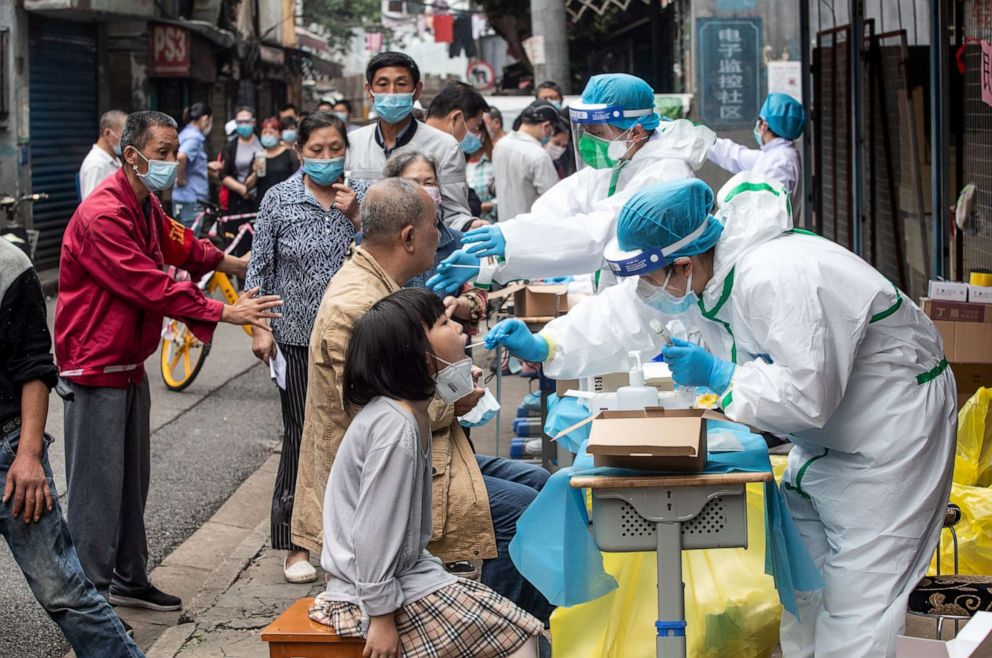
Last month, the Wuhan Municipal Health Commission launched the citywide campaign to test the entire population of 11 million residents for COVID-19 in an effort to search for asymptomatic carriers of the virus after a cluster of new cases emerged for the first time since the city had lifted its strict lockdown on April 8. Although recommended, participation in the testing campaign was voluntary. Residents who were previously tested did not need to take part. It was not recommended to test children under the age of 6, according to the Wuhan Municipal Health Commission's website.
The tests were provided free of charge, and Wuhan's deputy mayor Hu Yabo said the city spent some $126 million on the screening. He told reporters it was "totally worthwhile."
The citywide campaign brought the total number of COVID-19 tests conducted in Wuhan since the start of the pandemic to 10.9 million, according to Chinese epidemiologist Li Lanjuan.
"Wuhan is now safe," Li told reporters Tuesday, "and Wuhan people are safe."
6:49 a.m.: France lifts more coronavirus restrictions
France began its second phase of easing coronavirus restrictions on Tuesday after two months of lockdown, symbolizing the return to what the prime minister called "an almost normal life."
Cafes and restaurants are allowed to reopen in the country's so-called green zones, areas where the novel coronavirus is deemed least actively circulating. Parks, gardens and restaurants terraces only can reopen in Paris, now an orange zone, as inside dining rooms must remain closed. France no longer has any red zones, which denoted areas where the virus was actively circulating.
Some Parisians were seen rushing to restaurant terraces as soon as midnight struck.
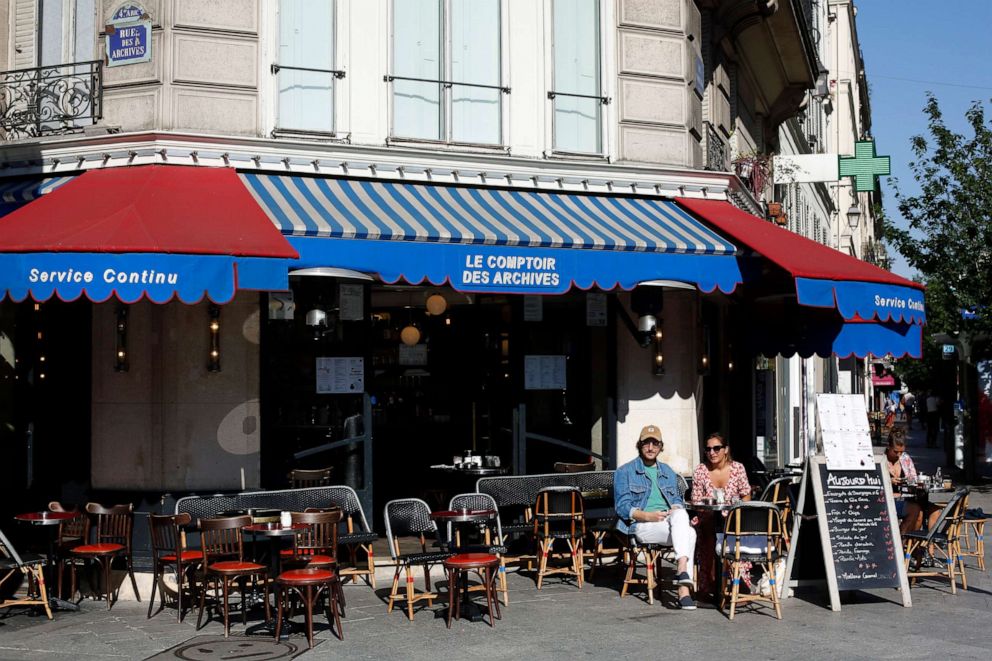
Paris Mayor Anne Hidalgo has released a list of streets that can be closed to traffic to allow bars, cafes and restaurants to expand their seating outdoors.
"In this crisis, Paris needs to support its restaurants and bars," Hidalgo told French daily newspaper Le Parisien on Sunday. "They are the heart of our city."
Most schools have now reopened across the country. Movement restrictions have been lifted, with residents permitted to travel 60 miles beyond their homes again. Museums and monuments have also started to reopen.
France began the initial easing of lockdown measures on May 11. The European nation has reported more than 189,000 diagnosed cases of COVID-19 with at least 28,836 deaths, according to a count kept by Johns Hopkins University.
6:07 a.m.: Russia reports under 9,000 new cases
Russia's coronavirus headquarters said Tuesday it had registered 8,863 new cases of COVID-19 and 182 deaths in the last 24 hours.
The country's tally now stands at 423,741 diagnosed cases with 5,037 deaths. Moscow, the capital, is the hardest-hit city in the country, accounting for about half of all infections.
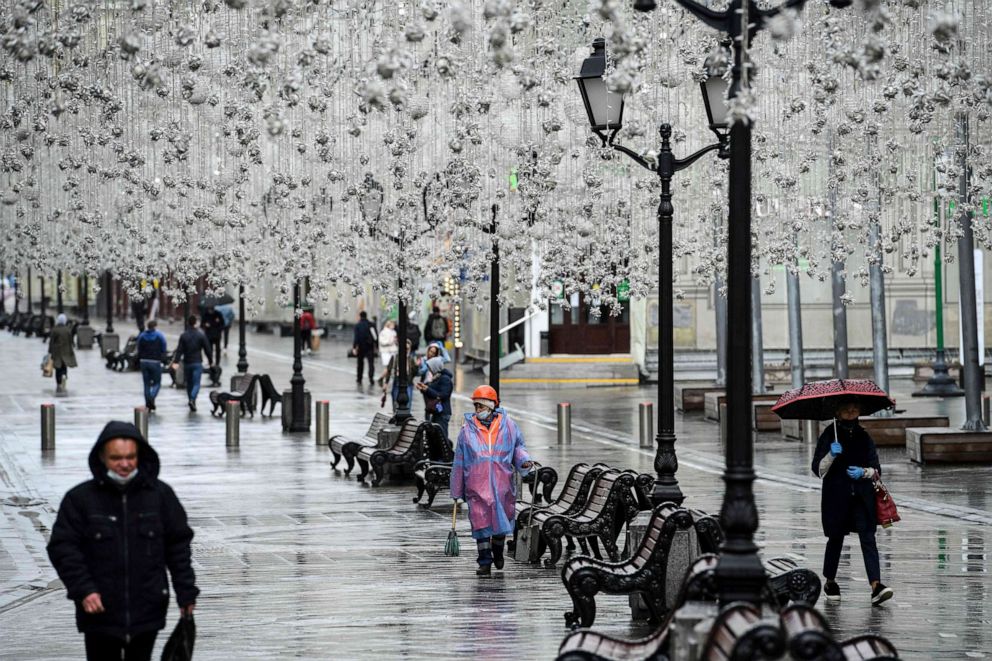
The latest daily caseload is down from a peak of 11,656 new infections reported on May 11, during which Russia registered over 10,000 new cases per day over a 12-day period. Since then, the daily number of new infections has hovered around 9,000.
Russia has third-highest number of cases in the world, behind Brazil and the United States, according to a count kept by Johns Hopkins University.
What to know about coronavirus:
- How it started and how to protect yourself: Coronavirus explained
- What to do if you have symptoms: Coronavirus symptoms
- Tracking the spread in the U.S. and worldwide: Coronavirus map
5:30 a.m.: Africa's coronavirus cases surpass 150,000
More than 150,000 people have now been diagnosed with COVID-19 in Africa and over 4,300 of them have died, according to a count kept by the Africa Centers for Disease Control and Prevention.
All 54 African nations have reported COVID-19 cases and around half have detected community transmission of the virus, concentrated mainly in major cities. South Africa has, by far, the highest number of diagnosed cases -- more than 34,000 -- while Egypt has the largest death toll -- over 1,000, according to the Africa CDC.
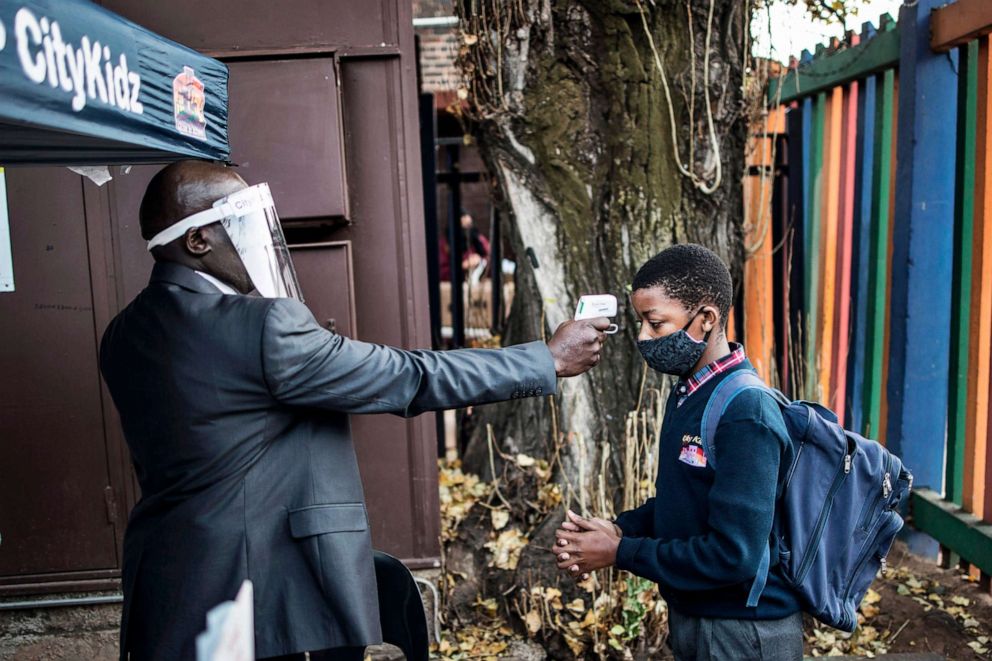
However, the World Health Organization says Africa remains the least-affected region globally in terms of the number of reported cases and fatalities. The continent of 1.3 billion people has just 1.5% of the world's reported cases and less than 0.1% of the world's deaths.
"Of course, these numbers don't paint the full picture," WHO Director-General Tedros Adhanom Ghebreyesus said at a press briefing in Geneva last week. "Testing capacity in Africa is still being ramped up and there is a likelihood that some cases may be missed."
"But even so, Africa appears to have so far been spared the scale of outbreaks we have seen in other regions," he added. "Africa's knowledge and experience of suppressing infectious diseases has been critical to rapidly scaling up an agile response to COVID-19."
3:45 a.m.: US reports over 21,000 new cases amid mass protests
More than 21,000 people were diagnosed with COVID-19 across the United States on Monday, according to a count kept by Johns Hopkins University.
The new cases were identified in all 50 states as well as Washington, D.C. and U.S. territories.
By May 20, all states had begun lifting stay-at-home orders and other restrictions put in place to curb the spread of the novel coronavirus. Over the Memorial Day weekend, photos and videos emerged of people flouting the social distancing rules at crowded bars and packed pool parties.
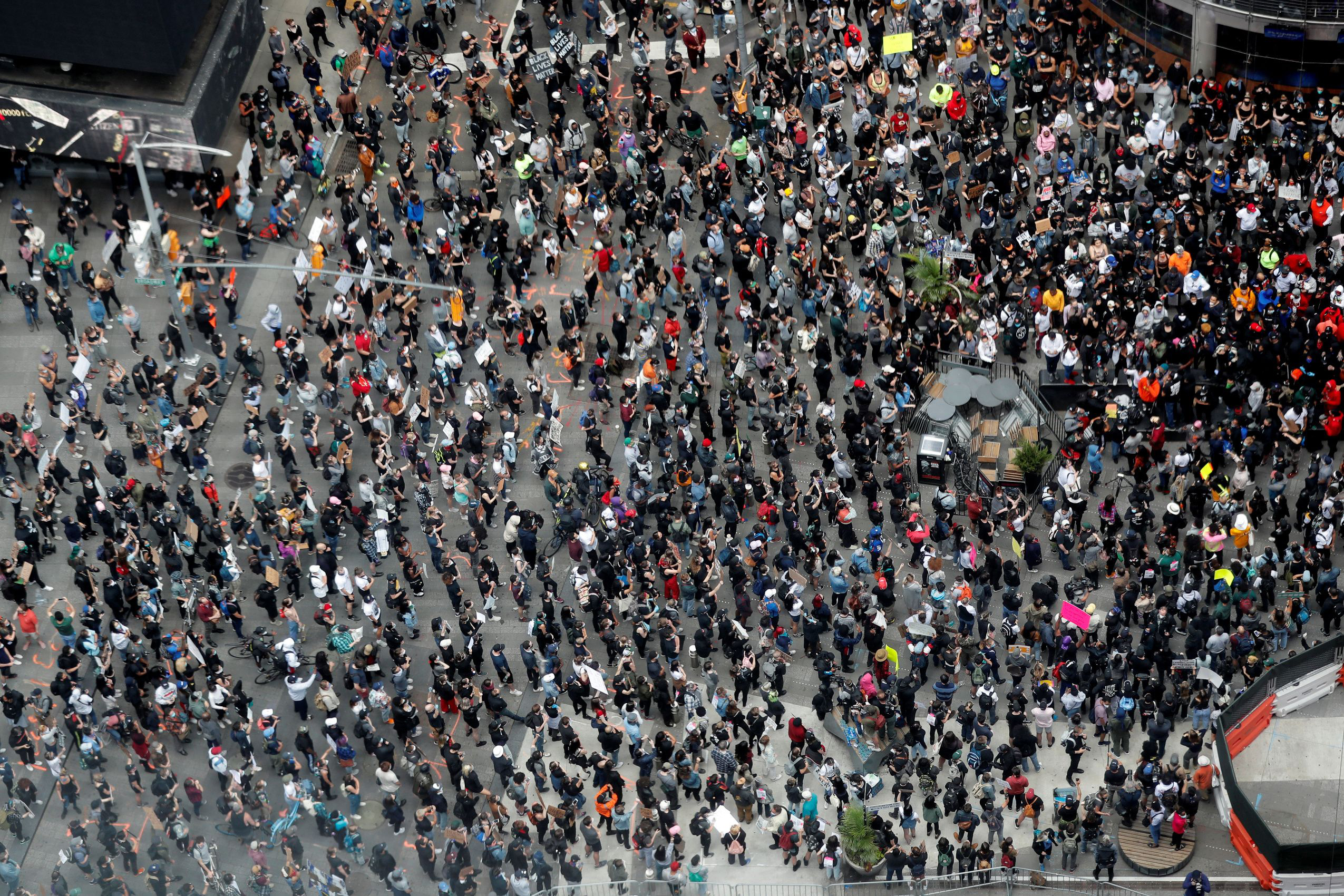
The slight uptick in infections also come as mass protests take place from coast to coast in the wake of the death of George Floyd, an unarmed black man who died on May 25 in Minneapolis shortly after a white police officer was filmed kneeling on his neck for nearly nine minutes as three other officers stood by.
The Minneapolis Police Department has since fired all four officers, and the one seen pinning Floyd down, Derek Chauvin, has been charged with third-degree murder and manslaughter. However, protesters are calling for the three other officers to be charged and are decrying the overall treatment of black Americans by police.
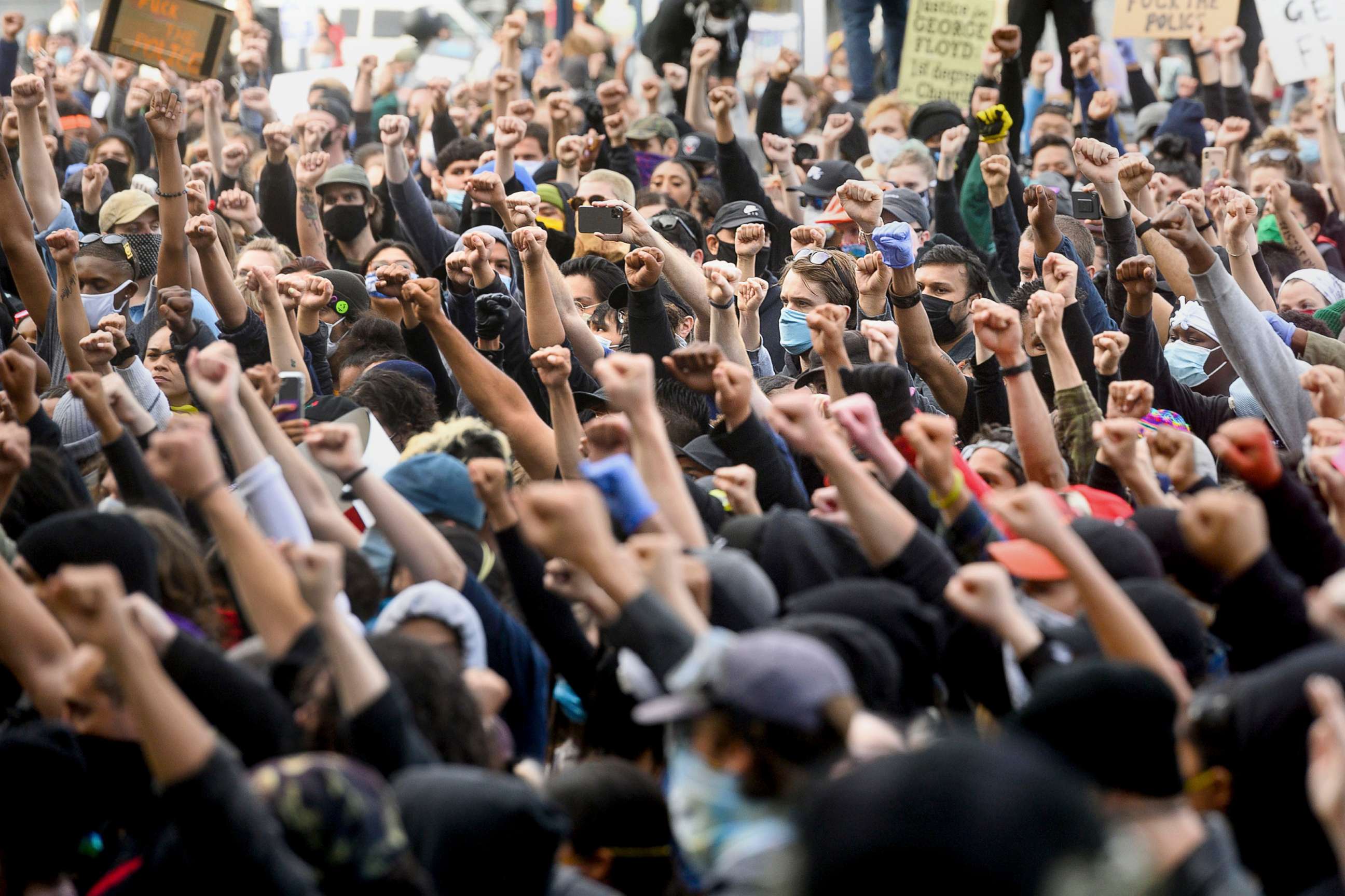
From May 25 through May 27, the United States reported a daily average of around 18,600 new cases of COVID-19. That number has increased to a daily average of around 22,500 new cases from May 28 through June 1, according to data from Johns Hopkins University.
The number of people who have taken to the streets in the days since Floyd's death has been in the thousands, although many have been seen wearing face masks.
ABC News' Stephanie Ebbs, Ibtissem Guenfoud, Alina Lobzina and Matthew Seyler contributed to this report.
